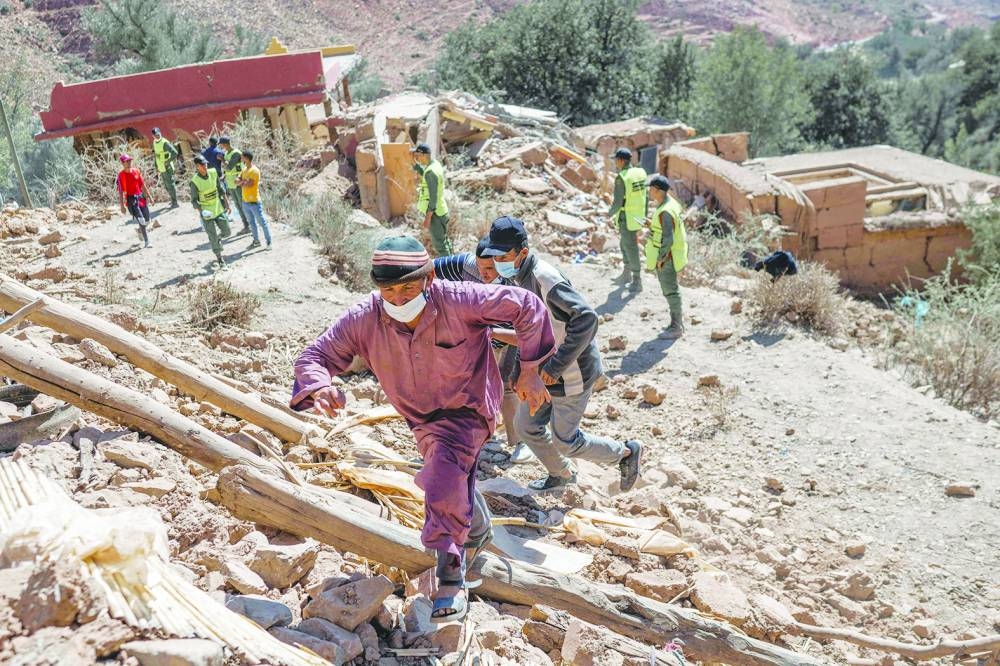Moroccan rescuers supported by foreign teams yesterday faced an intensifying race against time to dig out any survivors from the rubble of mountain villages after the country’s strongest-ever earthquake.
The 6.8-magnitude quake struck the Atlas mountains late Friday southwest of the tourist centre of Marrakesh. It killed at least 2,681 people and injured over 2,500 others, according to the latest official toll.
In the disaster-stricken community of Talat Nyacoub, 12 ambulances and several dozen 4X4s from the army and police were deployed while around 100 Moroccan rescuers were searching for signs of life in the collapsed buildings.
Nearby, AFP saw a Spanish team of 30 firefighters, a doctor, nurse and two technicians co-ordinating with Moroccan authorities before starting to dig, as a helicopter flew overhead.
“The big difficulty is in zones remote and difficult to access, like here, but the injured are choppered out,” said Annika Coll, who heads the Spanish team.
About 70 kilometres north, another Spanish team from the Military Emergencies Unit (UME) had set up camp since Sunday night on the edge of Amizmiz village.
Moroccan and Spanish rescuers there were hard at work trying to extract five members of a family from a house that had been crushed by the quake.
AFP journalists in Amizmiz saw Moroccan troops handing out hundreds of blankets to residents who had lost their homes.
“My mother died, her house is ruined. My place in Amizmiz no longer exists so we sleep outside in tents with my two children aged four months and six years,” said Hafid Ait Lahcen, 32, a construction worker.
“No one from the authorities has offered us accommodation. We are completely lost.”
In the rural commune of Ighil, at the epicentre of the quake, helicopters made several round trips to deliver aid, AFP correspondents said.
The roads leading to the village were clogged with ambulances and cars trying to deliver aid, but access had been cut off by a mudslide. “I walked 15 kilometres on foot from my village... to look for food,” said Lahcen Ait Malik. “Our children have nothing left to eat.”
Albert Vasquez, the Spanish unit’s communications officer, said time was short, warning that “it’s very difficult to find people alive after three days” but “hope is still there”.
The rescuers are assisted by four dogs and microcameras that can be fed into the rubble in an effort to detect signs of life.
For Lahcen and Habiba Barouj, the help came too late.
An ambulance took their father, 81, to hospital with a broken leg.

Emergency personnel continue rescue operations in the mountainous area of Tizi N’Test, in the Taroudant province, one of the most devastated in quake-hit Morocco, yesterday.
